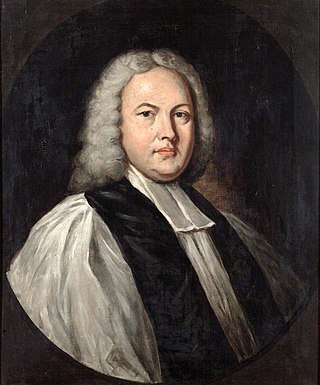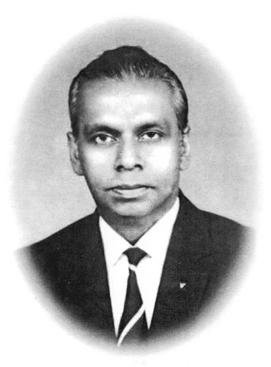
William Camden was an English antiquarian, historian, topographer, and herald, best known as author of Britannia, the first chorographical survey of the islands of Great Britain and Ireland, and the Annales, the first detailed historical account of the reign of Elizabeth I of England.

William Clark Styron Jr. was an American novelist and essayist who won major literary awards for his work.

Portnoy's Complaint is a 1969 American novel by Philip Roth. Its success turned Roth into a major celebrity, sparking a storm of controversy over its explicit and candid treatment of sexuality, including detailed depictions of masturbation using various props including a piece of liver. The novel tells the humorous monologue of "a lust-ridden, mother-addicted young Jewish bachelor," who confesses to his psychoanalyst in "intimate, shameful detail, and coarse, abusive language." Many of its characteristics went on to become Roth trademarks.

William Warburton was an English writer, literary critic and churchman, Bishop of Gloucester from 1759 until his death. He edited editions of the works of his friend Alexander Pope, and of William Shakespeare.

Thomas Malcolm Muggeridge was an English journalist and satirist. His father, H. T. Muggeridge, was a socialist politician and one of the early Labour Party Members of Parliament. In his twenties, Muggeridge was attracted to communism and went to live in the Soviet Union in the 1930s, and the experience turned him into an anti-communist.

William Raymond Manchester was an American author, biographer, and historian. He was the author of 18 books which have been translated into over 20 languages. He was awarded the National Humanities Medal and the Abraham Lincoln Literary Award.

The Death of a President: November 20–November 25, 1963 is historian William Manchester's 1967 account of the assassination of United States President John F. Kennedy. The book gained public attention before it was published when Kennedy's widow Jacqueline, who had initially asked Manchester to write the book, demanded that the author make changes in the manuscript.
Norman Geras was a political theorist and Professor Emeritus of Politics at the University of Manchester. He contributed to an analysis of the works of Karl Marx in his book Marx and Human Nature and the article "The Controversy About Marx and Justice". His "Seven Types of Obloquy: Travesties of Marxism", appeared in the Socialist Register in 1990.
Robert Horton Gundry is an American scholar and retired professor of New Testament studies and Koine Greek.
Bertrand de Jouvenel des Ursins was a French philosopher, political economist, and futurist. He taught at the University of Oxford, the University of Cambridge, the University of Manchester, Yale University, the University of Chicago, and the University of California, Berkeley.
Thomas Deacon was an English non-juror bishop, liturgical scholar and physician.
David Ernest William Laidler is an English/Canadian economist who has been one of the foremost scholars of monetarism. He published major economics journal articles on the topic in the late 1960s and early 1970s. His book, The Demand for Money, was published in four editions from 1969 through 1993, initially setting forth the stability of the relationship between income and the demand for money and later taking into consideration the effects of legal, technological, and institutional changes on the demand for money. The book has been translated into French, Spanish, Italian, Japanese, and Chinese.
Essays in Radical Empiricism (ERE) by William James is a collection edited and published posthumously by his colleague and biographer Ralph Barton Perry in 1912. It was assembled from ten out of a collection of twelve reprinted journal articles published from 1904–1905 which James had deposited in August, 1906, at the Harvard University Library and the Harvard Department of Philosophy for supplemental use by his students. Perry replaced two essays from the original list with two others, one of which didn't exist at the earlier time.

Kulatissa Nanda Jayatilleke was an internationally recognised authority on Buddhist philosophy whose book Early Buddhist Theory of Knowledge has been described as "an outstanding philosophical interpretation of the Buddha's teaching" in the Encyclopedia of Philosophy.

The 1860 Oxford evolution debate took place at the Oxford University Museum in Oxford, England, on 30 June 1860, seven months after the publication of Charles Darwin's On the Origin of Species. Several prominent British scientists and philosophers participated, including Thomas Henry Huxley, Bishop Samuel Wilberforce, Benjamin Brodie, Joseph Dalton Hooker and Robert FitzRoy.

Robert Clayton (1695–1758) was an Irish Protestant bishop, now known for his Essay on Spirit. In his own lifetime, he was notorious for his unorthodox beliefs, which led his critics to question whether he could properly be called a Christian at all, and at the time of his death, he was facing charges of heresy.
Giorgio Melchiori CBE FBA was an Italian literary critic and translator. His scholarly work was focused on the Early Modern English literature of the Elizabethan and Jacobean eras.

William Hamilton Drummond, D.D. was an Irish poet, animal rights writer and controversialist.

Edward Palmer Thompson was an English historian, writer, socialist and peace campaigner. He is best known today for his historical work on the radical movements in the late 18th and early 19th centuries, in particular The Making of the English Working Class (1963).
The Structure of Politics at the Accession of George III was a book written by Lewis Namier. At the time of its first publication in 1929 it caused a historiographical revolution in understanding the 18th century by challenging the Whig view that English politics had always been dominated by two parties.












